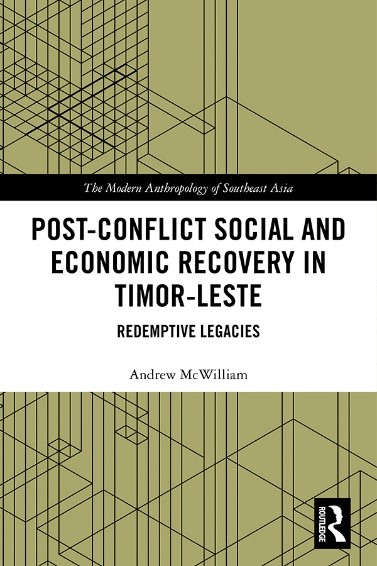Publications
2023 | 2022 | 2021 | 2020 |2019 | 2018 | 2017 | 2016 | 2015 | 2014 | 2013 | 2012 | 2011 | 2010 | 2009
2023
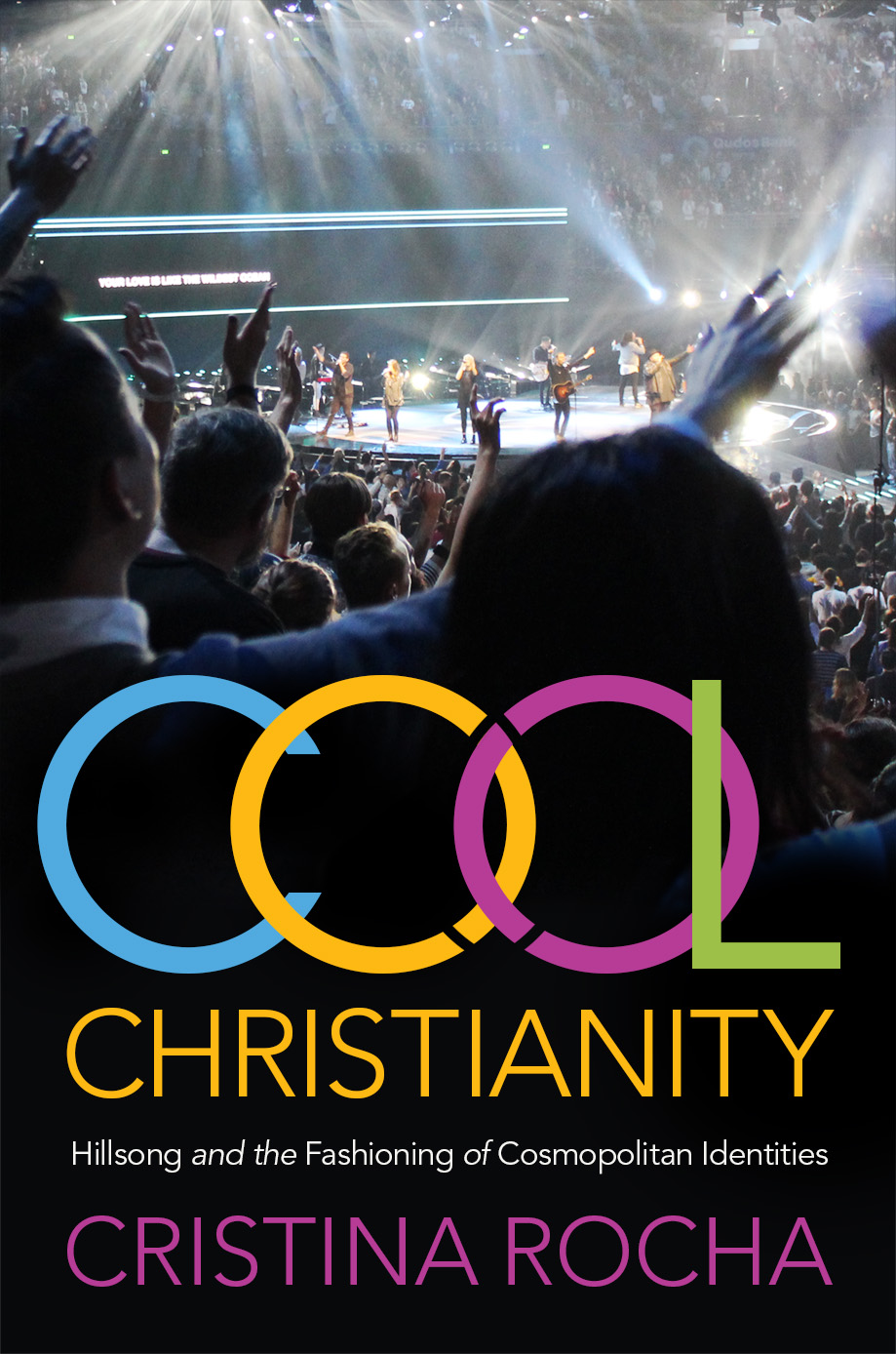
Rocha, C. (2023) Cool Christianity: Hillsong and the Fashioning of Cosmopolitan Identities. NY: Oxford University Press.
When did Christianity become cool? In her exciting new book, anthropologist Cristina Rocha shows how new and reconfigured forms Christianity in both the Global North and South are increasingly digitally mediated, engaged with youth and popular cultures, and involve new forms of consumption, branding, and identity. The Australian megachurch Hillsong has expanded globally through a Cool Christianity style which embraces pop music, digital media, spectacle, branding, and celebrity culture. Rocha follows young Brazilians from their budding Hillsong fandom, to their journey to Australia to join the church and study at its college, and on their return to Brazil. She argues that Brazilian middle-class youth join Hillsong to become cosmopolitan and to distinguish themselves from the Pentecostalism of the Brazilian poor. Notwithstanding Hillsong’s recent scandals, the megachurch offers them an alternative geography of belonging, where pastors speak English and Christianity is about love, ethics, rationality, autonomy, and more equal relations between congregants and pastors. Rocha makes a strong argument for the importance of the local in globalization studies, and the key roles of class, affect, and aesthetics for an understanding of the formation of religious subjectivities and communities.
2022
Foroutan Y, SAGE Journals: Education's economic return in multicultural Australia: Demographic analysis
https://journals.sagepub.com/doi/10.1177/14407833211049479
Abstract:
This article focuses on the impact of education as the most important human capital endowment in the context of migration, religion, gender and ethnic identity from a demographic perspective. It presents research-based evidence to address such key research questions as whether and how significantly women's education provides equal benefit in the labour market for individuals, based on their migration status, religion, and ethnic identity. The field of this study is the multi-ethnic and multicultural context of Australia with a wide range of ethnic and religious groups of migrants from throughout the world. Preliminary results show that labour market achievement is positively and significantly associated with the educational attainment of individuals, irrespective of their migration status, religious affiliation and ethnicity. However, more comprehensive analysis from comparative perspectives reveals that the positive economic return of education is higher for natives (compared with migrants), for ethnic migrants from developed regions of origin (compared with those from less developed regions of origin) and for non-Muslims (compared with Muslims). The article provides two plausible explanations for these patterns. The first refers to the lack of recognition of overseas qualifications and to the devaluation of foreign education that particularly applies to ethnic migrants from less developed regions. The second relates to disadvantage through structural discrimination against migrants, particularly when their cultural and religious identity, such as Islamic names and dress codes, are distinctively displayed. In sum, this analysis presents further research-based evidence to go beyond the human capital theory in order to explain more appropriately the economic return of women's education in the context of religion and migration from a demographic perspective.
2021
Foroutan Y, Politics, Religion & Ideology: Institutionalization of State Religion in the Islamic Republic of Iran: A Socio-Demographic Perspective
https://www.tandfonline.com/doi/full/10.1080/21567689.2021.1877668?journalCode=ftmp21
Abstract:
This research paper focuses on the notion of institutionalization of state religion through educational institution in the Islamic context from socio-demographic perspective. Despite the existence of a large body of literature arguing the substantial role of Islamic authorities’ socialization mechanisms, especially educational institution in the formation of religious identity, the argument has not enjoyed sufficiently supportive research-based evidence in the existing literature. This study aims to contribute filling this research gap, through its empirical research results presented and discussed in this paper. This paper particularly addresses whether educational institution operates as a mechanism of democratic socialization or is utilized to institutionalize state religion. The field of this study is the Islamic Republic of Iran. According to the results of this study, the first major observations support religious priority, suggesting that the overwhelming representation of religious and Islamic characteristics exists throughout state’s educational resources analyzed in this study. Furthermore, the results of this study develop significantly and support empirically the notion that the real influence of educational institution is determined by ideology and power relations. In sum, the overwhelming under-representation of ‘others’ not only casts doubt on democratic socialization process but also supports the institutionalization of state religion through educational institution in this Islamic context.
2020
Foroutan Y, British Journal of Middle Eastern Studies: Demographic analysis on social perceptions of Hijab in contemporary Iran: dimensions and determinants
https://www.tandfonline.com/doi/full/10.1080/13530194.2020.1847041?journalCode=cbjm20
Abstract:
While a large body of the literature confirms the existence of diverse styles of the hijab and attributes this diversity as a consequence of religious authorities’ socialization mechanisms across the Islamic world, the literature still lacks sufficiently fresh research-based evidence to assess the actual effects of these official mechanisms on individuals’ perceptions towards the hijab. This crucial research gap is the central focus of this study and I present research-based evidence in this paper to contribute to filling this gap from a demographic perspective. Generally speaking, the results of this analysis have shown that the social perceptions on the hijab are substantially affected by the main demographic determinants. Of them, age composition and education play overwhelmingly a more important role: while the high-educated younger cohorts hold substantially modest and liberal perceptions towards the hijab, the opposite applies to the low-educated older cohorts. In sum, the results of this analysis not only cast a revolutionary doubt on the success of the authorities’ long-term religious bombardment strategy but also argue that such a failure will become increasingly a more visible observation due to the country’s demographics particularly a growing university educated youth bulge fuelled by the global modern communication technologies.
2019
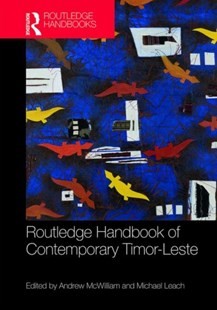
| McWilliam A.R. and M Leach 2019 ‘Timor-Leste: Historical Legacies and Contemporary Challenges’, The Routledge Handbook of Contemporary Timor Leste, in McWilliam A.R. and M Leach (eds). 1-25, Oxon: Routledge. Abstract: Following an introduction and overview of the country, the Handbook is divided into five parts: Written by an international team of experts, the Handbook covers the principle concerns that have contributed significantly to the shape and character of contemporary Timor-Leste. It offers a timely and valuable reference guide for students, scholars and policymakers with an interest in International Relations, Southeast Asian Studies and Peace Studies. |
| McWilliam A.R. 2020 Post-Conflict Social and Economic Recovery in Timor-Leste: Redemptive Legacies, Modern Anthropologies of Southeast Asia Series, London, New York: Routledge Abstract: This book presents an ethnography of post-conflict social and economic recovery in East Timor following the end of Indonesian military occupation of the territory in 1999. It offers a longer-term analysis of the pathways to rebuilding and restoring local community life, and the budding prosperity that has flowed from participation in spontaneous circular labour migration and the remittance benefits that have followed. Based on extensive comparative literature and field-based empirical research, the book explores the protracted process of cultural and economic revival following a generation-long period of military repression and a sustained struggle for national independence. With a focus on the experiences of Fataluku ethno-linguistic communities in Timor-Leste, the study offers nuanced perspectives on the legacies of conflict and local forms of governance, the revitalisation of customary exchange and ancestral religion. Presenting both an optimistic and alternative narrative in which a traumatised population finds new hope and emergent prosperity, this book highlights a renewed concern with inter-generational well-being and widespread aspirations for prosperity and material benefits following decades of deprivation. It is also an analysis of post-conflict resilience against the odds, illustrating the adaptive possibilities of tradition in the context of globalisation and expectations of modernity. As a major contribution to understanding the emergence and expansion of informal transnational labour migration out of East Timor, this book will be of interest to academics, researchers and policy makers of contemporary Timor-Leste, Southeast Asian Politics, Southeast Asian Culture and Society, Development Studies, Anthropology and Conflict Studies. |
2018
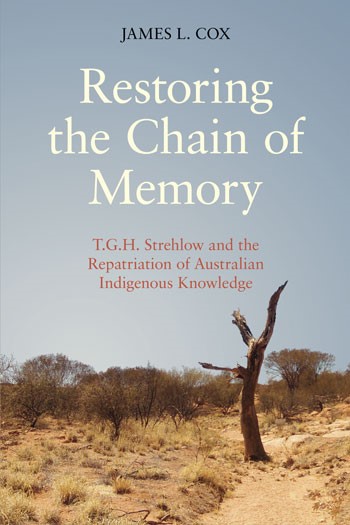
| Cox, James L. (2018). Restoring the Chain of Memory. T.G.H. Strehlow and the Repatriation of Australian Indigenous Knowledge. Sheffield, UK: Equinox. Abstract: Restoring the Chain of Memory describes and analyses the writings and records compiled by the notable linguist, T.G.H. Strehlow (1908–1978), on Australian Aboriginal Religions, particularly as practised by the Arrernte of Central Australia. During numerous research trips between 1932 and 1966, the local Indigenous Arrernte Elders entrusted him with sacred objects, allowed him to film their secret rituals and record their songs, partly because he was regarded as one of them, an ‘insider’, who they believed would help preserve their ancient traditions in the face of threats posed by outside forces. Strehlow characterized Arrernte society as ‘personal monototemism in a polytotemic community’. This concept provides an important insight into understanding how Arrernte society was traditionally organized and how the societal structure was re-enforced by carefully organized rituals. Strehlow’s research into this complex societal system is here examined both in terms of its meaning and current application and with reference to how the societal structure traditionally was interwoven into religious understandings of the world. It exemplifies precisely how the ‘insider-outsider’ problem is embodied in one individual: he was accepted by the Arrernte people as an insider who used this knowledge to interpret Arrernte culture for non-Indigenous audiences (outsiders). This volume documents how Strehlow’s works are contributing to the current repatriation by Australian Aboriginal leaders of rituals, ancient songs, meanings associated with sacred objects and genealogies, much of which by the 1950s had been lost through the processes of colonization, missionary influences and Australian governmental interference in the lives of Indigenous societies. |
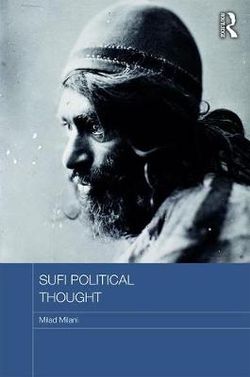
| Milani, M. (2018), Sufi Political Thought, Routledge 9781138787643. Abstract: Sufism is generally perceived as being spiritually focused and about the development of the self. However, Sufi orders have been involved historically as important civic and political actors in the Muslim world, having participated extensively in inter-faith dialogue and political challenges to religious orthodoxy. This book presents a comprehensive overview of the Sufi political tradition, both historically and in its present form. It outlines how Sufi thought has developed, examines how Sufism has been presented both by scholars and by Sufis themselves, and considers Sufis’ active political roles. It argues that Sufis – frequently well educated, well travelled and imaginative – have been well placed to engage with other faiths and absorb their ideas into Islam; but that they have also been, because they understand other faiths, well placed to understand the distinctiveness of Islam, and thereby act as the guardians of Islam’s core ideas and values. |
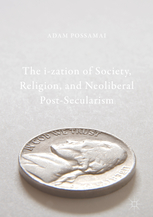
| Possamai, A. (2018) The I-zation of Society, Religion, and Neoliberal Post-Secularism, Palgrave McMillan, Basingstoke. Abstract: This book explores the elective affinity of religion and post-secularism with neoliberalism. With the help of digital capitalism, neoliberalism dominates, more and more, all aspects of life, and religion is not left unaffected. While some faith groups are embracing this hegemony, and others are simply following the signs of the times, changes have been so significant that religion is no longer what it used to be. Linking theories from Fredric Jameson and George Ritzer, this book presents the argument that our present society is going through a process of i-zation in which (1) capitalism dominates not only our outer, social lives (through, for example, global capitalism) but also our inner, personal lives, through its expansion in the digital world, facilitated by various i-technology applications; (2) the McDonaldization process has now been normalized; and (3) religiosity has been standardized. Reviewing the new inequalities present in this i-society, the book considers their impact on Jurgen Habermas’s project of post-secularism, and appraises the roles that various religions may have in supporting and/or countering this process. It concludes by arguing that Habermas’s post-secular project will occur but that, paradoxically, the religious message(s) will be instrumentalized for capitalist purposes. |
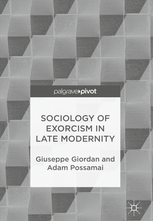
| Giordan, G. and A. Possamai (2018) Sociology of Exorcism in Late Modernity, Palgrave McMillan, Basinkstoke.
Sociology of Exorcism in Late Modernity features a detailed case-study of a Catholic exorcist in the south of Europe who dealt with more than 1,000 cases during a decade of work. |
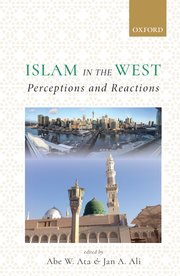
| Ata, Abe W. and Ali, Jan A. (eds.). (2018). Islam in the West: Perceptions and Reactions, New Delhi: Oxford University Press. Abstract: This book focuses on the way Muslims and mainstream societies in the West, especially in America, Australia, and Europe, perceive each other. It focuses on the meaning of being a Muslim in a multicultural, multi-religious, and technologically developed world. The essays in the volume explore the socio-political, cultural, and historical differences between the two groups, Muslims and Western societies, while attempting to reconcile some of these differences in creative ways by initiating constructive dialogues between them. It also takes into account the tensions, challenges, and complexities between these communities across various contexts, including, schools, universities, media, government, private, and public institutions. This volume thus explores this interplay between perceptions and misperceptions by delving into the societal structures of Western host and immigrant communities. |
2017
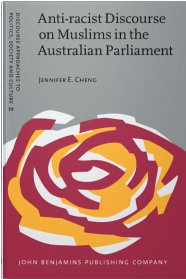
| Cheng, Jennifer E. (2017), Anti-racist Discourse on Muslims in the Australian Parliament, John Benjamins, Amsterdam. Abstract: Anti-racist Discourse on Muslims in the Australian Parliament examines anti-racist discourse in contemporary Australian politics, in particular, how politicians contest and challenge racism against a minority group that does not constitute a traditional ‘race’. Using critical discourse analysis, this book firstly deconstructs the racist, xenophobic and discriminatory arguments against Muslims. Secondly, it highlights the anti-racist counter-discourse to these arguments. Since blatantly racist statements are less common nowadays, the book focuses on manifestations of ‘culturalist racism’. It does this by investigating how talk about Muslims positions them as not Australian or as not belonging to Australia – the book takes such ‘discursive exclusion from the nation’ as one of the most widespread forms of ‘culturalist racism’ in Western liberal-democracies. In addition to contributing to the theoretical discussion on the relationship between Muslims, racism and anti-racism, the book expands on methods that apply critical discourse analysis and the discourse-historical approach by providing a practical guide to analysing anti-racist political discourses. |
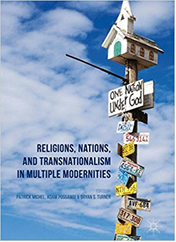
| Michel P., A. Possamai and B. S. Turner eds. (2017). Religions, Nations and Transnationalism in Multiple Modernities, Palgrave McMillan, Basingstoke. Abstract: This edited book explores the impact of globalisation on the relationship between religion and politics, religion and nation, religion and nationalism, and the impact that transnationalism has on religious groups. In a post-Westphalian and transnational world, with increased international communication and transportation, a plethora of new religious recompositions religions now take part in a network society that cuts across borders. This collection, through its analysis of historical and contemporary case studies, explores the growth of both national and transnational religious movements and their dealings with the various versions of modernity that they encounter. It considers trends of religious revitalisation and secularisation, and processes of nationalism and transnationalism through the prism of the theory of multiple modernities, acknowledging both its pluralist world view but also the argument that its definition of modernity is often so inclusive as to lose coherence. Providing a cutting edge take on 21st century religion and globalization, this volume is a key read for all scholars of religion, secularisation and transnationalism. |
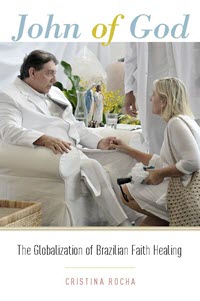
| Rocha, C. (2017) John of God: The Globalisation of Brazilian Faith Healing. New York: Oxford University Press. Abstract: This is the first ethnographic account of the global spiritual movement headed by John of God, a Brazilian faith healer. In just over a decade John of God has become an international healer superstar – visited by thousands of the desperately ill, the wealthy, celebrities such as Oprah Winfrey, and an increasing array of media. Drawing on multi-sited fieldwork in Brazil, the US, UK, Germany, Australia and New Zealand, this book provides a rich and important case study of religious globalisation, and an analysis of the prominent place of healing (of the body, the spirit and the planet) in late modernity. |
2016

| Jinks, T. (2016). Disappearing Object Phenomenon: An Investigation,(opens in a new window) McFarland & Company Abstract: Have you ever had your car keys or television remote control inexplicably vanish from under your nose, only to reappear months later in another part of the house for no evident reason? Most would dismiss it as absent-mindedness, with perhaps a joking remark about paranormal activity. Yet remarkable circumstances surrounding many such accounts suggest that the mysterious disappearance of objects could be more than "just one of those things." Examining a large selection of fascinating narratives, this book investigates the "disappearing object phenomenon from a scientific standpoint. Both skeptical and supportive perspectives on DOP are considered, leading to the conclusion that "objects behaving badly" are subtle indicators of a controversial take on the nature of reality. |
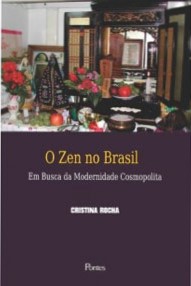
| Rocha, C. (2016). O Zen no Brasil: Em Busca da Modernidade Cosmopolita.(opens in a new window) Campinas: Editora Pontes. First published in English as Rocha, C. (2006) Zen in Brazil: The Quest for Cosmopolitan Modernity. Honolulu: University of Hawaii Press. Abstract: Widely perceived as an overwhelmingly Catholic nation, Brazil has experienced in recent decades a growth in the popularity of Buddhism among the urban, cosmopolitan upper classes. Rocha contends that in the 1990s Buddhism in general and Zen in particular were adopted by national elites, the media, and popular culture as a set of humanistic values to counter the rampant violence and crime in Brazilian society. Rocha shows, moreover, that in practicing Zen, the Brazilian intellectual elites from the 1950s onward have been driven by a desire to acquire and accumulate cultural capital both locally and overseas. Their consumption of Zen has been an expression of their desire to distinguish themselves from popular taste at home while at the same time associating themselves with overseas cultural elites. |
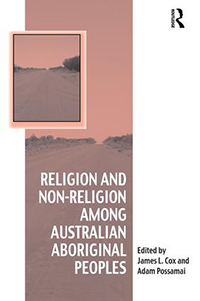 | Cox, J. and Possamai, A. (eds.). (2016). Religion and Non-Religion among Australian Aboriginal People,(opens in a new window) Ashgate Publishing. Abstract: Offering a significant contribution to the emerging field of 'Non-Religion Studies', Religion and Non-Religion among Australian Aboriginal Peoples draws on Australian 2011 Census statistics to ask whether the Indigenous Australian population, like the wider Australian society, is becoming increasingly secularised or whether there are other explanations for the surprisingly high percentage of Aboriginal people in Australia who state that they have 'no religion'. Contributors from a range of disciplines consider three central questions: How do Aboriginal Australians understand or interpret what Westerners have called 'religion'? Do Aboriginal Australians distinguish being 'religious' from being 'non-religious'? How have modernity and Christianity affected Indigenous understandings of 'religion'? These questions re-focus Western-dominated concerns with the decline or revival of religion, by incorporating how Indigenous Australians have responded to modernity, how modernity has affected Indigenous peoples' religious behaviours and perceptions, and how variations of response can be found in rural and urban contexts. |
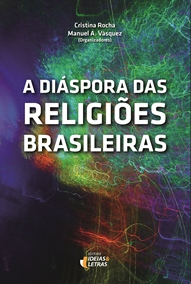
| Rocha, C. & M. Vasquez (eds). (2016). A Diáspora das Religiões Brasileiras.(opens in a new window) São Paulo: Ideias e Letras.
First published in English as Rocha, C. & M. Vasquez (eds) (2013) The Diaspora of Brazilian Religions,(opens in a new window) Leiden: Brill. Abstract: It explores the global spread of religions originating in Brazil, a country that has emerged as a major pole of religious innovation and production. Through ethnographically-rich case studies throughout the world, ranging from the Americas (Canada, the U.S., Peru, and Argentina) and Europe (the U.K., Portugal, and the Netherlands) to Asia (Japan) and Oceania (Australia), the book examines the conditions, actors, and media that have made possible the worldwide construction, circulation, and consumption of Brazilian religious identities, practices, and lifestyles, including those connected with indigenized forms of Pentecostalism and Catholicism, African-based religions such as Candomblé and Umbanda, as well as diverse expressions of New Age Spiritism such as the John of God Movement, and Ayahuasca-centered neo-shamanism like Vale do Amanhecer and Santo Daime. |
2015

| Brian C. Stiller, Todd M. Johnson, Karen Stiller and Mark Hutchinson (eds.) (2015). Evangelicals Around the World: A Global Handbook for the 21st Century, Thomas Nelson There are an estimated 600 million Evangelicals in the world today, crossing cultures, histories, languages, politics, and nationalities. Evangelicals Around the World: A Global Handbook for the 21st Century introduces the fastest-growing segment of the global Christian church to the world and to each other. Bringing together a team of multi-disciplined scholars, writers, activists, and leaders from around the world, this handbook provides a compelling look at the diverse group we call Evangelicals. In this guide, written by those who know the movement the best, the issues that divide and the beliefs that unite this global Christian movement are presented in a journalistic fashion. Evangelicals Around the World describes the past and the present, the unique characters, and the powerful ministries of Evangelicals. With a large trim size and colorful page design, this beautiful book is the perfect choice for laypeople and scholars alike. |
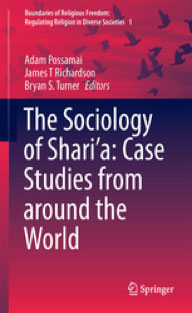
| Possamai, A., J. Richardson, and B. Turner eds. (2015).The Sociology of Shari'a: Case Studies from Around the World, Springer, Leiden. This edited volume offers a collection of papers that present a comparative analysis of the development of Shari'a in countries with Muslim minorities, such as America, Australia, Germany, and Italy, as well as countries with Muslim majorities, such as Malaysia, Bangladesh, Turkey, and Tunisia. The Sociology of Shari'a provides a global analysis of these important legal transformations and analyzesthe topic from a sociological perspective. It explores examples of non-Western countries that have a Muslim minority in their populations, including South Africa, China, Singapore, and the Philippines. In addition, the third part of the book includes case studies that explore some ground-breaking theories on the sociology of Shari'a, such as the application of Black, Chambliss, and Eisenstein's sociological perspectives. |
2014
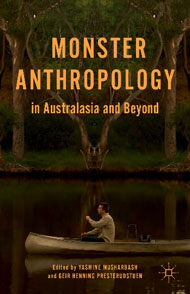
| Yasmine Musharbash and Geir-Henning Presterudstuen. (2014). Monster Anthropology in Australasia and Beyond, Palgrave-McMillan Offering a dialogue between anthropology and literature, culture, and media, this book presents fine-grained ethnographic vignettes of monsters dwelling in the contemporary world. These monsters hail from Aboriginal Australia, the Pacific, Asia, and Europe, and their presence is inextricably intertwined with the lives of those they haunt. |
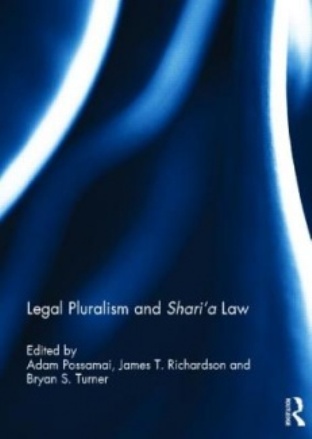
| Possamai, A., J. Richardson, and B. Turner eds. (2014). Legal Pluralism and Shari'a Law, Routledge. [Re-print of Democracy and Security 7 (4)]. Legal pluralism has often been associated with post-colonial legal developments especially where common law survived alongside tribal and customary laws. Focusing on Shari'a, this book examines the legal policies and experiences of various societies with different traditions of citizenship, secularism and common law. Where large diasporic communities of migrants develop, there will be some demand for the institutionalization of Shari'a at least in the resolution of domestic disputes. This book tests the limits of multiculturalism by exploring the issue that any recognition of cultural differences might imply similar recognition of legal differences. It also explores the debate about post-secular societies specifically to the presentation and justification of beliefs and institutions by both religious and secular citizens. |
2013
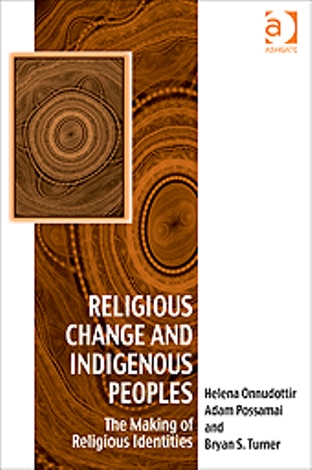 | Onnudottir H., Possamai, A. and Turner B. (2013). Religious Change and Indigenous Peoples ,(opens in a new window) Ashgate. Exploring religious and spiritual changes which have been taking place among Indigenous populations in Australia and New Zealand, this book focuses on important changes in religious affiliation in census data over the last 15 years. Drawing on both local social and political debates, while contextualising the discussion in wider global debates about changing religious identities, especially the growth of Islam, the authors present a critical analysis of the persistent images and discourses on Aboriginal religions and spirituality. The authors offer a critical analysis to on-going public, political and sociological debates about religious conversion (especially to Islam) and changing religious affiliations (including an increase in the number of people who claim 'no religion') among Indigenous populations. |
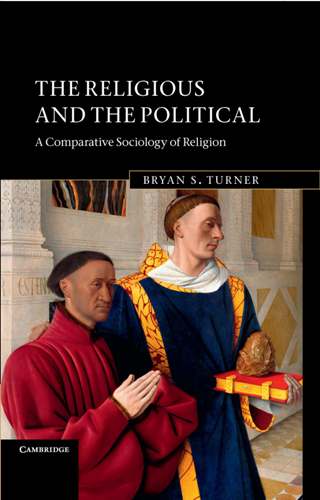 | Turner, B. (2013). The Religion and the Political ,(opens in a new window) Cambridge. While the relationships between ethics and religion, and violence and politics, are of enduring interest, the interface between religion and violence is one of the most problematic features of the contemporary world. Following in the tradition of Max Weber's historical and comparative study of religions, this book explores the many ways in which religion and politics are both combined and separated across different world religions and societies. Through a variety of case studies including the monarchy, marriage, law and conversion, Bryan S. Turner explores different manifestations of secularization, and how the separation of church and state is either compromised or abandoned. He considers how different states manage religion in culturally and religiously diverse societies and concludes with a discussion of the contemporary problems facing the liberal theory of freedom of religion. |
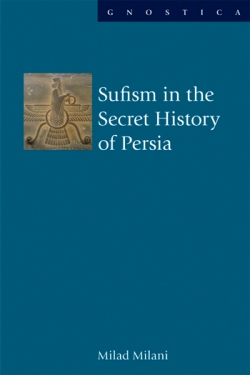 | Milani, M. (2013). Sufism in the Secret History of Persia (opens in a new window), Acumen. Sufism formed one of the cultures of resistance which has existed in the social fabric of Persia since antiquity. Such resistance continues to manifest itself today with many looking to Sufism as a model of cooperation between East and West, between traditional and modern. This book explores the place of Sufi mysticism in Iran's intellectual and spiritual consciousness through traditional and contemporary Sufi thinkers and writers. It examines the current of spirituality which extends from the old Iranian worship of Mithra to modern Islam. This current always contains elements of gnosis and inner knowing, but has often provided impetus for socio-political resistance. The study describes how these persisting pre-Islamic cultural and socio-religious elements have secretly challenged Muslim orthodoxies and continue to shape the nature and orientation of contemporary Sufism. |
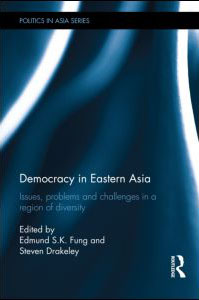 | Fung, Edmund S K and Drakeley, Steven. (2013). Democracy in Eastern Asia: Issues, Problems and Challenges in a Region of Diversity (opens in a new window), Routledge. With the 'Asian Century' now upon us, bringing with it many profound economic and political changes to the world order, it is very timely to assess the state of democracy in the Asian region. Focusing on Eastern Asia, this book provides such a review, highlighting lines of connections between the states and peoples of this complex and dynamic region. Featuring chapters on China, Japan, Taiwan, South Korea, Hong Kong, Indonesia, Malaysia, Singapore, Thailand, the Philippines, Cambodia, and Myanmar, this book provides a detailed analysis of the state of democracy in each country or territory, and shows how each is different and distinctive, whilst simultaneously drawing out important similarities. Further, it provides up to date analysis of political changes in the region relating to the processes of democratization, and, in some cases, to the ongoing quest for democracy. Critically examining the current state of political development in the region, the chapters explore the issues and problems that challenge the region's governments in terms of democratic transition, democratic consolidation, democratic improvement and good governance. With contributions from leading international scholars, this book will be of great interest to students and scholars interested in Asian politics, and politics and democratization studies more broadly. |
 | Henslin, James M, Possamai, A. and Possamai-Inesedy, A. (2013). Sociology: A Down to Earth Approach (2e) (opens in a new window), Pearson. James Henslin has always been able to share the excitement of sociology, with his acclaimed "down-to-earth" approach and personal writing style that highlight the sociology of everyday life and its relevance to students' lives. Adapted for students studying within Australia, this text, now in a second edition, has been made even more relevant and engaging to students. With wit, personal reflection, and illuminating examples, the local author team share their passion for sociology, promote sociology to students and entice them to delve deeper into this exciting science. Six central themes run throughout this text: down-to-earth sociology, globalisation, cultural diversity, critical thinking, the new technology, and the growing influence of the mass media on our lives. These themes are especially useful for introducing the controversial topics that make studying sociology such a lively, exciting activity. |
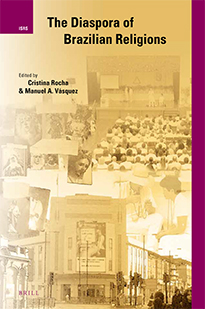
| Rocha, C. & M.Vasquez (eds) (2013) The Diaspora of Brazilian Religions, Leiden: Brill. This book explores the global spread of religions originating in Brazil, a country that has emerged as a major pole of religious innovation and production. Through ethnographically-rich case studies throughout the world, ranging from the Americas (Canada, the U.S., Peru, and Argentina) and Europe (the U.K., Portugal, and the Netherlands) to Asia (Japan) and Oceania (Australia), the book examines the conditions, actors, and media that have made possible the worldwide construction, circulation, and consumption of Brazilian religious identities, practices, and lifestyles, including those connected with indigenized forms of Pentecostalism and Catholicism, African-based religions such as Candomblé and Umbanda, as well as diverse expressions of New Age Spiritism such as the John of God Movement, and Ayahuasca-centered neo-shamanism like Vale do Amanhecer and Santo Daime. |
2012
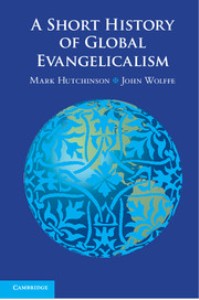
| Hutchinson, Mark and John Wolffe, A Short History of Global Evangelicalism,(opens in a new window) Cambridge University Press 2012. This book offers an authoritative overview of the history of evangelicalism as a global movement, from its origins in Europe and North America in the first half of the eighteenth century to its present-day dynamic growth in Africa, Asia, Latin America and Oceania. Starting with a definition of the movement within the context of the history of Protestantism, it follows the history of evangelicalism from its early North Atlantic revivals to the great expansion in the Victorian era, through to its fracturing and reorientation in response to the stresses of modernity and total war in the late nineteenth and early twentieth centuries. It describes the movement's indigenization and expansion toward becoming a multicentered and diverse movement at home in the non-Western world that nevertheless retains continuity with its historic roots. The book concludes with an analysis of contemporary worldwide evangelicalism's current trajectory and the movement's adaptability to changing historical and geographical circumstances. |
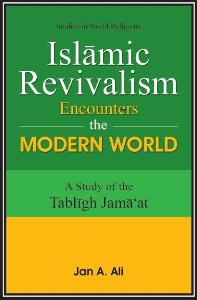
| Ali, Jan A., Islamic Revivalism Encounters the Modern World,(opens in a new window) Sterling Publishers 2012. This book contends that contemporary Islamic revivalism is a defensive reaction to the crises of modernity (unemployment, under-employment, poverty, inequality, injustice, discrimination, etc.), but that it is neither anti-modernity nor does it seek modernity's destruction. It posits that Muslims are in crisis due to the threat of losing their faith and identity in modernity because, according to the revivalist Muslims, the 'true' Islamic practice no longer constitutes the foundation of everyday Muslim living. To preclude this from reaching a point of no return, Islamic revivalist movements like the Tablīgh Jamā'at are engaged in encouraging Muslims to return to the 'true' teachings of Islam. This volume highlights the veritable 'sectarian' intensity with which Tablīghīs undertake this restorative work. |
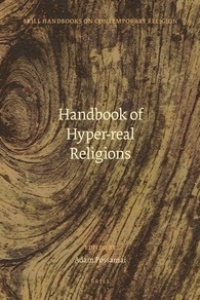
| Possamia, Adam (ed), Handbook of Hyper-real Religions,(opens in a new window) Brill 2012. Today a new trend is clearly discernable, that of 'hyper-real religions'. These are innovative religions and spiritualities that mix elements of religious traditions with popular culture. If we imagine a spectrum of intensity of the merging of popular culture with religion, we might find, at one end, groups practicing Jediism appropriated from the Star Wars movies, Matrixism from the Matrix trilogy, and neo-pagan rites based on stories from The Lord of the Rings and the Harry Potter series. At the other end of the spectrum, members of mainstream religions, such as Christianity, can be influenced or inspired by, for example, The Da Vinci Code. Through various case studies, this book studies the on- and off-line religious/spiritual consumption of these narratives through a social scientific approach. |
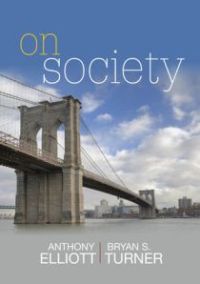 | Elliot, Anthony and Bryan S. Turner, On Society,(opens in a new window) Polity 2012. 'Society' is one of the most frequently used words in public life; it is also a foundational term in the social sciences. In our own time, however, the idea has never been so much in dispute and so little understood. In this erudite and original book, two of the world's leading social theorists focus on unravelling the different meanings of society as a way of introducing the reader to contemporary debates in social theory. The authors argue provocatively that all ideas of society can be assigned to one of three analytical categories, or some combination of these - structure, solidarity or creation - and develop a fresh characterisation of the nature of the social as a means of understanding global transformations. |
2011
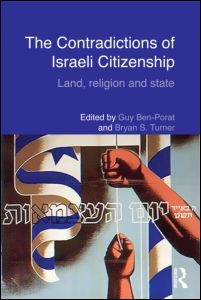
| Ben-Porat, Guy and Bryan S. Turner (eds), The Contradictions of Israeli Citizenship,(opens in a new window) Routledge 2011 |
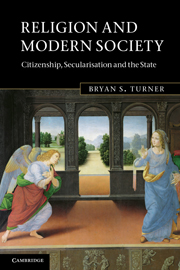 | Turner, Bryan S., Religion and Modern Society,(opens in a new window) Cambridge 2011 |
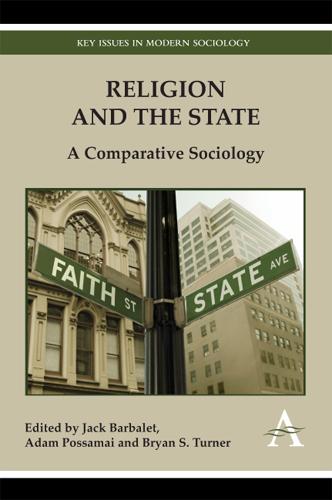 | Barbalet, Jack, Adam Possamai and Bryan S. Turner (eds), Religion and the State,(opens in a new window) Anthem Press 2011 |
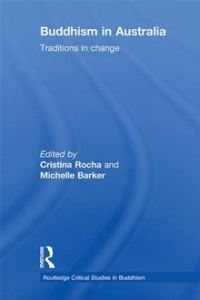 | Rocha, Cristina and Michelle Barker (eds), Buddhism in Australia,(opens in a new window) Routledge 2011 |
2010
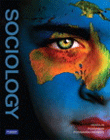 | Henslin, J, Adam Possamai and Alphia Possamai-Inesedy, Sociology: A Down-to-Earth Approach,(opens in a new window) Pearsons 2010 |
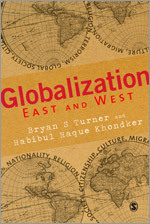 | Turner, Bryan S. and Khondker, H., Globalization East and West,(opens in a new window) SAGE 2010 |
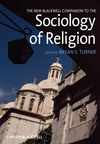 | Turner, Bryan S. (ed), The New Blackwell Companion to the The Sociology of Religion, Wiley- Blackwell 2010 |
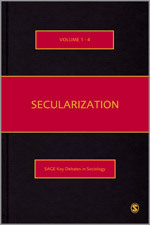 | Turner, Bryan S. (ed), Secularization (opens in a new window)(Four Volum Set), SAGE 2010 |
2009
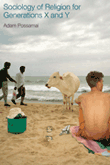
| Possamai, Adam, Sociology of Religion for Generations X and Y, Equinox 2009 |
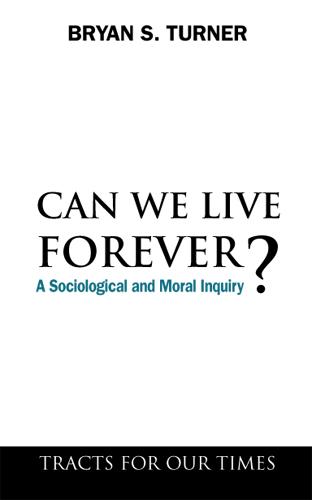
| Turner, Bryan S., Can We Live Forever,(opens in a new window) Anthem Press 2009 |
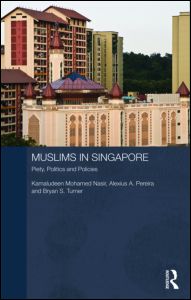
| bin Nasir, Kamaludeen, Pereira A, and Bryan S. Turner, Muslims in Singapore: Piety and Politics in a Secular Society, Routledge 2009 |
 | Turner, Bryan (ed), The Routledge International Handbook of Globalization Studies,(opens in a new window) Taylor and Francis 2009 |

 Religion and Society
Religion and Society
